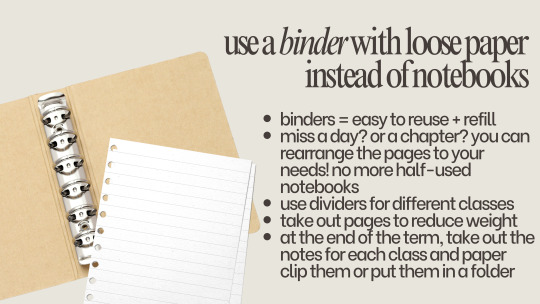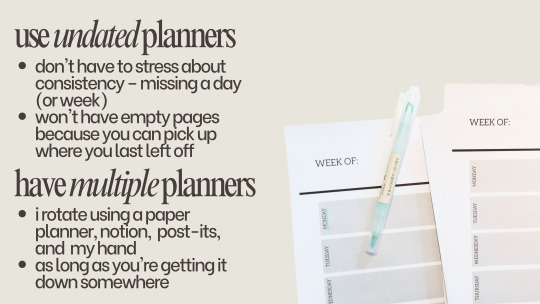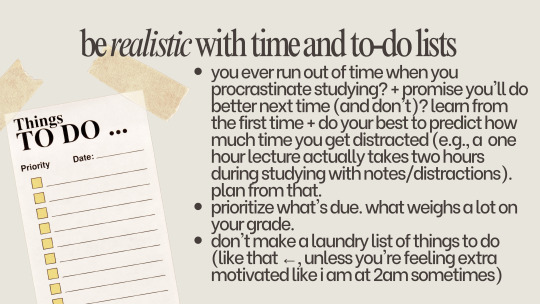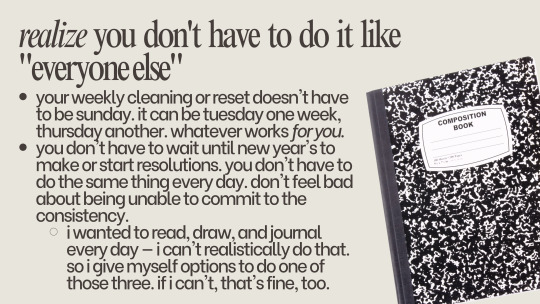Text
How to Start a New Language
1. Research: Be sure to look up the basics about any language before starting, such as the amount of speakers, countries, alphabet, origins, family, etc. This will give you a basic overall grasp of the history of your language and will help you know what to expect. It’s also super helpful if you happen to be stuck between two languages but can only learn one!
2. Duolingo: Goes without saying; this is a free and interactive app/website that gives you upper beginner/lower intermediate language skills (A2/B1 CEFR). It also allows you to fully suss out your language and if you end up hating it, then at least you haven’t spent a fortune on books yet!
3. Write: Start writing from day one. Yep. Day One. Even if you only know three words, three verbs, and three pronouns, that’s twenty-seven entire sentences that you can now write! Keep a journal, a diary, write your shopping list or about what you had for lunch, a conversation with a friend, your language goals, books you want to read or have read, anything!
4. Goals: Learn one phrase, three grammar points, and five new words every time you study your language. After that, set whatever goals you want! You learn only what you choose to learn. If you want to be fluent/C1 level after three months, then go for it! Equally, if you want to learn just enough to become a beginner/A1 after three years, then that’s okay too!
5. Aural: Don’t underestimate the importance of listening! This is a big one, because it doesn’t matter how quickly you can translate texts, or how easily you keep a diary, if you can’t listen to a slow speaking video in your language without blanking, it’s only going to get worse. Look up videos, podcasts, music, anything that will help you improve your listening and pronunciation skills, as well as get a grasp on how natives speak!
6. MiscHours: Small moments throughout the day when you do nothing mind draining: These are what I like to call Miscellaneous Hours. Brushing your teeth, showering, sitting on the bus, waiting for the elevator, lying in bed at night waiting for Metamorphosis to carry you away… These are moments you can take advantage of, either by running through language rules/vocab in your head, or talking outloud to yourself. if you don’t know a word, make a mental (or physical) note of it and look it up later!
7. Numbers: Learn numbers before you learn how to count and learn how to count before you learn how to tell the time. Most people skip the basic one, two, three, when starting a new language, and honestly I don’t blame them, but numbers come up so so often in everyday life that it’s crucial for you to master them early on!
8. Watch: Find a tv show in your target language and start watching it from day one, using subtitles in both your chosen language and in your native language! Yes, you won’t understand a single damn thing in the beginning, but you’ll be surprised how quickly you start to pick things up just based on context alone. Search for kids youtube videos, change your netflix language settings, or download extensions like this one!
9. Dictionary: Find a good online dictionary before you start anything. Preferably, find one that also gives the grammar behind verbs/nouns. For a lot of languages, the gender of nouns are difficult to remember, so learning whether a word is masc./fem./neu. from day one is important!
10. Read: Find children’s books in your new language, either online or a physical copy, and start reading. At the start, you’ll underline pretty much everything, but soon you’ll start to guess the meaning of words based on context, and as words appear again and again, you’ll subconsciously begin to learn them! It’s an easy way to pick up new vocab and see grammar rules in action!
327 notes
·
View notes
Text
Want to learn something new in 2022??
Absolute beginner adult ballet series (fabulous beginning teacher)
40 piano lessons for beginners (some of the best explanations for piano I’ve ever seen)
Excellent basic crochet video series
Basic knitting (probably the best how to knit video out there)
Pre-Free Figure Skate Levels A-D guides and practice activities (each video builds up with exercises to the actual moves!)
How to draw character faces video (very funny, surprisingly instructive?)
Another drawing character faces video
Literally my favorite art pose hack
Tutorial of how to make a whole ass Stardew Valley esque farming game in Gamemaker Studios 2??
Introduction to flying small aircrafts
French/Dutch/Fishtail braiding
Playing the guitar for beginners (well paced and excellent instructor)
Playing the violin for beginners (really good practical tips mixed in)
Color theory in digital art (not of the children’s hospital variety)
Retake classes you hated but now there’s zero stakes:
Calculus 1 (full semester class)
Learn basic statistics (free textbook)
Introduction to college physics (free textbook)
Introduction to accounting (free textbook)
Learn a language:
Ancient Greek
Latin
Spanish
German
Japanese (grammar guide) (for dummies)
French
Russian (pretty good cyrillic guide!)
317K notes
·
View notes
Text
Help save the Yiddish Translation Fellowship Program

I wanted to ask my followers and fellow language enthusiasts to donate to the Yiddish Book Center so that they can continue to train translators and make Yiddish literature accessible (or at least share this post if possible) 🐐
4K notes
·
View notes
Text
Suddenly feeling far too much desire to start learning Japanese
#I don’t have time for this!!#language#langblr#language learning#lifelong learning#self study#studyblr#japanese
1 note
·
View note
Text
Catalan Drops Vocab:
Basics (cont)
Family
La mare - mother
El pare - father
Els nens - children
L’avi - grandfather
L’àvia - grandmother
La xicota - girlfriend
El xicot - boyfriend
Els pares - parents
Weather
Quin temps fa? - how’s the weather?
Fa bon dia - it’s nice
Fa calor - it’s hot
Fa fred - it’s cold
Fa mal temps - it’s bad
General
Benvinguts! - welcome!
Com estàs? - how are you?
Estic visitant Catalunya - I’m visiting Catalonia
Estic aprenent parlar a Català - I’m learning to speak Catalan
#language#langblr#language learning#lifelong learning#self study#studyblr#Catalan#català#vocab#vocabulary#vocab list#vocabulary list#drops#drops app
1 note
·
View note
Text
Catalan Drops Vocab:
Start with the Basics
Useful Words:
Hola - hi
Adeu - bye
Si us plau - please
Graciès - thank you
Sí - yes
No - no
Soc feliç - I am happy
Questions Words:
Qui? - who?
Què - what?
Quan? - when?
On? - where?
Per què? - why?
Com? - how?
Common Verbs:
Jo camino - I walk
Jo faig - I make
Jo sec - I sit
Jo sento - I hear
Jo dormo - I sleep
Jo bec - I drink
Jo pregunto - I ask
Jo escric - I write
#language#langblr#language learning#lifelong learning#self study#studyblr#Catalan#català#vocab#vocabulary#vocab list#drops#drops app
0 notes
Text
Catalan Drops Vocab: Starter Pack
Hola - hi
Graciès - thank you
El gos - dog
La casa - house
El llibre - book
La camisa - shirt
Salut! - cheers!
#language#langblr#language learning#lifelong learning#self study#studyblr#Catalan#català#vocab#vocabulary#vocab list
1 note
·
View note
Text
Does anyone know how to change the category of a study set on Vaia? It’s bothering me that mine aren’t organized with the correct labels
0 notes
Text
How am I supposed to think about German when they added Catalan to Drops?
0 notes
Text
Oklahoma School for the Deaf has opened up FREE ASL COURSES for the Fall season this new school year and anybody can join. The courses close on December 31st of this year (2023) so if you've been thinking about learning ASL here is your opportunity to get professional lessons for FREE
If you're interested, here's the link: https://courses.osd.k12.ok.us/collections
This is a GOLDMINE for information because not only do you get free video lessons by professionals that you can do at your own pace, but there's also graded quizzes as well as resources to educate you on the history of Deaf culture as well as sub-communities within, with links to loads of different websites to read up on Deaf-related topics.
25K notes
·
View notes
Text
How to study languages without studying
Whether you're just starting out and have had bad experiences with textbook learning in the past or are getting burnt out from prepping for the next proficiency test, it's never a bad idea to put the textbooks away for a time and just enjoy your target language. If you're new to the world of immersion, here are a few ways to get you started.

Follow along with the lyrics of a song. Spotify's not-so-new-anymore lyrics feature is great for this, especially since it has timed lyrics, but it doesn't have every song.
Expert mode: Write out the lyrics and underline/highlight/make note of all the words and grammar structures you don't know. Learn these unknowns until you can understand the whole song!
Extra challenge: Translate a song from your target language. I usually tend to stay away from translations in my study, but for those of you who aspire to be translators (or already are!), the poetic nature of song lyrics can be a fun challenge.
Watch a show or movie. Netflix has now introduced a feature where you can sort by language! If there's nothing made in your language that you're interested in, it also gives the option to sort by shows and movies that have the audio or subtitles available. Internet Archive also tends to have lots of foreign films that I'm looking for.
Easy mode: Watch with English or your native language subtitles. When doing this, try to still listen to what's being said and pick up on words and phrases that you know, or match new words with their translation in the subtitles. Note: reading one language and listening to another is a skill in and of itself! Don't be discouraged if you can't do both at the same time yet, you're brain is still making the connections in intonation and cadence of the language.
Hard mode: Watch with captions in your target language. This helps you connect listening and reading, especially in languages where the spelling isn't exactly phonetic, or it uses a different alphabet than what you're used to.
Expert mode: No captions or subtitles! But who knows, maybe you're better at listening comprehension than I am. Make sure you're getting comprehensible input here; some shows and movies are much harder than others. But above all else, watch what keeps your interest. A movie where you can catch half the dialogue but is super engaging is better for you than an "easy" movie that you're going to spend your time ignoring.
Polyglot mode?: Watch something in your target language with subtitles in a different target language. This adds just one too many layers of obfuscation for me, but if you're into the challenge, more power to you.
Watch YouTube. You can change your language preference on YouTube, and with that, the Explore section will give you recommendations in your target language. Going into the trending tab with your target language can give you a good idea about what people are interested in in the countries where your target language is spoken.
Read something. It can be a book, it can be a comic. There are plenty of webcomics out there in a number of languages! There's also probably an English language listicle with recommendations of easier to understand webcomics for learners, too.
If you're just getting started in immersion, you can choose whether you focus on intensive reading or extensive reading (this actually goes for all kinds of immersion, but is easiest to control with reading since it happens at your own pace). Intensive reading is reading with the goal of understanding everything 100%. If you don't understand a word, or a grammar point, or the reading of a character, look it up. Extensive reading is reading just to get the gist of things. Look up words and grammar points only if they stop you from understanding the general meaning of the sentence or section. And of course, the more you immerse, the less you'll have to look things up, but remember that difficulty varies between materials, even within books of the same age range, genre, and medium.
A small digression: If you decide that you never want to open a textbook on your language learning journey, more power to you! It can be done and I know people who have gotten to proficient levels of their target language without textbooks. If you want this to be you, extensive immersion is your best friend. You also might want to get comfortable with the flashcard program anki, because, if this is your goal, all those unknown grammar points and words will probably end up there. But at the end of the day, language learning is an intensely personal journey, and what works for others won't necessarily work for you. Finding what works for you is just part of learning a language.
Play a game. Lots of games are region locked (hint: Pokemon Sun/Moon isn't! If you start a new game, you can choose which language you want to play it in), but there are plenty of free online games still lurking in the corners of the internet. With a bit of googling, you can probably find something in your target language. Just the other day, I went out to find one of those hidden item games in Japanese and ended up finding an entire site dedicated to user made browser games.
If you're learning Japanese or Korean, picrew might be fun to look through as well. I noticed that plenty of picrews have basic anatomy vocabulary. I'm not super familiar with picrew myself, but the ones I've seen tend to be in Korean and Japanese
And lastly, don't fully give up on textbooks before trying them out. Don't be discouraged if textbooks truly aren't your thing, but studying a language on your own time can feel much different than studying for school. Don't put too much pressure on yourself and just have fun with your language. Additionally, if you'd rather learn in a video format, many languages have full courses uploaded to YouTube for you to try. Finding these can be difficult for some languages though, so don't hesitate to reach out to other learners and see what they recommend!
Got your materials ready? Great! Now go forth and immerse!
93 notes
·
View notes
Text
Apps i use to learn languages
1. Babbel

This is a language app that also teaches grammar & offers grammar exercises. You can practise the vocab words you learned & it teaches you about the people & culture of your target country.
However, it only offers 14 languages (English, German, Spanish, Italian, French, Russian, Portuguese, Polish, Turkish, Norwegian, Danish, Swedish, Dutch, Indonesian) and you need a payed subscription to unlock the courses and can only learn one language at a time.
2. Duolingo

This is a language learning app that offers dozens of languages, even fictional ones from Game of Thrones & Star Trek. You can access all courses without subscription and can learn several languages at a time.
However, it doesn't offer any grammar exercises and you can't revise the vocab you learned.
3. LingoClip

In this app, you can listen to songs in your target language & have to fill in the gaps in the lyrics. You get 3 free songs per day without a subscription.
The languages they offer are English, Spanish, Portuguese, Italian, French, German, Dutch, Chinese, Japanese, Korean, Turkish, Polish, Swedish, Finnish, Catalan.
4. Beelinguapp

This app helps you practice reading texts in your target language by showing you the text in your native language & in your target language and reading it to you sentence by sentence.
The languages they offer are English, Spanish, Portuguese, French, Italian, German, Japanese, Russian, Chinese, Hindi, Turkish, Korean, Arabic, and Swedish.
5. LingQ

This app works similarly to Beelinguapp, but you can mark any words you know and don't know and practice the ones you didn't know.
The languages they offer are English, French, Spanish, Japanese, Italian, German, Russian, Chinese, Portuguese, Swedish, Korean, Dutch, Polish, Greek, Finnish, Norwegian, Czech, Arabic, Hebrew, Turkish, Latin, Romanian, Esperanto, Ukrainian, Belarussian, Catalan, Bulgarian, Persian, Danish, Gujarati, Cantonese, Croatian, Hungarian, Armenian, Indonesian, Icelandic, Malaysian, Slovakian, Serbian, Tagalog, and Taiwanese Mandarin.
6. Quizlet

This is a vocab card app. I really like that it gives you translation suggestions when you type out a vocab word and it recognizes the language automatically. You can also use vocab lists from other users and from specific exercise books or courses, and you can sort your vocab lists into sets and files and share them with others if you'd like. If you subscribe to Quizlet, you can also keep track of your learning.
7. AnkiDroid

This is another vocab card app which i use for learning sign languages. You can put formulas, pictures, videos, and more on the vocab cards and you can synchronise the app with the pc programme.
8. Chatterbug

Chatterbug offers live streams in English, German, French, and Spanish where they explain grammar rules, cultural aspects, idioms, and more. They also offer private language lessons.
9. Slowly

On Slowly you can find penpals around the world that are learning your target language or people from your target language's country that want to learn your native language, so you can help each other.
575 notes
·
View notes
Text
Spanish Imperfect
Estar in the Imperfect
Yo estaba
Tú estabas
Él/Ella/Usted estaba
Nosotros estábamos
Vosotros estabais
Ellos/Ellas/Ustedes estaban
Ser in the Imperfect
Yo era
Tú eras
Él/Ella/Usted era
Nosotros éramos
Vosotros erais
Ellos/Ellas/Ustedes eran
Regular Verbs in the Imperfect
*-ar verbs: -aba, -abas, -aba, -ábamos, -abais, -aban*
*Ex. Acompañar (to accompany)*
Yo acompañaba
Tú acompañabas
Él/Ella/Usted acompañaba
Nosotros acompañábamos
Vosotros acompañabais
Ellos/Ellas/Ustedes acompañaban
*Ex. Dar (to give)*
Yo daba
Tú dabas
Él/Ella/Usted daba
Nosotros dábamos
Vosotros dabais
Ellos/Ellas/Ustedes daban
*Ex. Trabajar (to work)*
Yo trabajaba
Tú trabajas
Él/Ella/Usted trabaja
Nosotros trabajábamos
Vosotros trabajabais
Ellos/Ellas/Ustedes trabajaban
*-er & -ir verbs: -ía, -ías, -ía, -íamos, -íais, -ían*
*Ex. Hacer (to do, to make)*
Yo hacía
Tú hacías
Él/Ella/Usted hacía
Nosotros hacíamos
Vosotros hacíais
Ellos/Ellas/Ustedes hacían
*Ex. Querer (to want)*
Yo quería
Tú querías
Él/Ella/Usted quería
Nosotros queríamos
Vosotros queríais
Ellos/Ellas/Ustedes querían
*Venir (to come)*
Yo venía
Tú venías
Él/Ella/Usted venía
Nosotros veníamos
Vosotros veníais
Ellos/Ellas/Ustedes venían
Irregular Verbs in the Imperfect
**(There are only 3!)**
*Ser (to be)*
Yo era
Tú eras
Él/Ella/Usted era
Nosotros éramos
Vosotros erais
Ellos/Ellas/Ustedes eran
*Ir (to go)*
Yo iba
Tú ibas
Él/Ella/Usted iba
Nosotros íbamos
Vosotros ibais
Ellos/Ellas/Ustedes iban
*Ver (to see)*
Yo veía
Tú veías
Él/Ella/Usted veía
Nosotros veíamos
Vosotros veíais
Ellos/Ellas/Ustedes veían
#spanish#español#language#langblr#language learning#lifelong learning#studyblr#self study#grammar#spanish grammar#verb conjugation
2 notes
·
View notes
Text
Spanish Preterit Tense
Estar in the Preterit
You estuve
Tú estuviste
Él/Ella/Usted estuvo
Nosotros estuvimos
Vosotros estuvisteis
Ellos/Ellas/Ustedes estuvieron
Ser in the Preterit
Yo fui
Tú fuiste
Él/Ella/Usted fue
Nosotros fuimos
Vosotros fuisteis
Ellos/Ellas/Ustedes fueron
Regular Verbs in the Preterit
**-ar verbs: -é, -aste, -ó, -amos, -asteis, -aron**
*Ex. Ayudar (to help)*
Yo ayudé
Tú ayudaste
Él/Ella/Usted ayudó
Nosotros ayudamos
Vosotros ayudasteis
Ellos/Ellas/Usted ayudaron
*Ex. Pensar (to think)*
Yo pensé
Tú pensaste
Él/Ella/Usted pensó
Nosotros pensamos
Vosotros pensasteis
Ellos/Ellas/Ustedes pensaron
*Ex. Cantar (to sing)*
Yo canté
Tú cantaste
Él/Ella/Usted cantó
Nosotros cantamos
Vosotros cantasteis
Ellos/Ellas/Ustedes cantaron
**-er & -ir verbs: -í, -iste, -ió, -imos, -isteis, -ieron**
*Ex. Comer (to eat)*
Yo comí
Tú comiste
Él/Ella/Usted comió
Nosotros comimos
Vosotros comisteis
Ellos/Ellas/Ustedes comieron
*Ex. Entender (to understand)*
Yo entendí
Tú entendiste
Él/Ellos/Usted entendió
Nosotros entendimos
Vosotros entendisteis
Ellos/Ellas/Ustedes entendieron
*Ex. Salir (to leave)*
Yo salí
Tú saliste
Él/Ella/Usted salió
Nosotros salimos
Vosotros salisteis
Ellos/Ellas/Ustedes salieron
Irregular Verbs in the Preterit
*-ir Verbs with Stem Changes in the Third Person*
Mentir (to lie) → Él mintieron
Dormir (to sleep) → Ella durmieron
Pedir (to ask for) → Usted pidieron
*Verbs with J in the Preterit Tense*
*Decir (to say, to tell)*
Yo dije
Tú dijiste
Él/Ella/Usted dijo
Nosotros dijimos
Vosotros dijisteis
Ellos/Ellas/Ustedes dijeron
*Producir (to produce)*
Yo produje
Tú produjiste
Él/Ella/Usted produjo
Nosotros produjimos
Vosotros produjisteis
Ellos/Ellas/Ustedes produjeron
*Traer (to bring)*
Yo traje
Tú trajiste
Él/Ella/Usted trajo
Nosotros trajimos
Vosotros trajisteis
Ellos/Ellas/Ustedes trajeron
*Other Irregular Verbs*
*Andar (to stroll)*
Yo anduve
Tú anduviste
Él/Ella/Usted anduvo
Nosotros anduvimos
Vosotros anduvisteis
Ellos/Ellas/Ustedes anduvieron
*Caber (to fit)*
Yo cupe
Tú cupiste
Él/Ella/Usted cupo
Nosotros cupimos
Vosotros cupisteis
Ellos/Ellas/Ustedes cupieron
*Hacer (to do, to make)*
Yo hice
Tú hiciste
Él/Ella/Usted hizo
Nosotros hicimos
Vosotros hicisteis
Ellos/Ellas/Ustedes hicieron
*Poder (to be able to)*
Yo pude
Tú pudiste
Él/Ella/Usted pudo
Nosotros pudimos
Vosotros pudisteis
Ellos/Ellas/Ustedes pudieron
*Poner (to put)*
Yo puse
Tú pusiste
Él/Ella/Usted puso
Nosotros pusimos
Vosotros pusisteis
Ellos/Ellas/Ustedes pusieron
*Querer (to want)*
Yo quise
Tú quisiste
Él/Ella/Usted quiso
Nosotros quisimos
Vosotros quisisteis
Ellos/Ellas/Ustedes quisieron
*Saber (to know)*
Yo supe
Tú supiste
Él/Ella/Usted supo
Nosotros supimos
Vosotros supisteis
Ellos/Ellas/Ustedes supieron
*Tener (to have)*
Yo tuve
Tú tuviste
Él/Ella/Usted tuvo
Nosotros tuvimos
Vosotros tuvisteis
Ellos/Ellas/Ustedes tuvieron
*Venir (to come)*
Yo vine
Tú viniste
Él/Ella/Usted vino
Nosotros vinimos
Vosotros vinisteis
Ellos/Ellas/Ustedes vinieron
*Dar (to give)*
Yo di
Tú diste
Él/Ella/Usted dio
Nosotros dimos
Vosotros disteis
Ellos/Ellas/Ustedes dieron
*Ir (to go)*
Yo fui
Tú fuiste
Él/Ella/Usted fue
Nosotros fuimos
Vosotros fuisteis
Ellos/Ellas/Ustedes fueron
#spanish#español#language#langblr#language learning#lifelong learning#self study#studyblr#grammar#Spanish grammar#verb conjugation
0 notes
Text
I’m looking to revive my Spanish knowledge so I got an advanced textbook to help me. I’m not sure how advanced it really is since this all seems quite basic, but I’m only on the first chapter.
Anyway! I thought I’d share some info from each chapter as a come across it and maybe that’ll help me hold myself more accountable.
Here’s some vocab from Chapter 1!
Interrogative Words
¿Cómo? - Who?
¿Cuál? - Which one?
¿Cuáles? - Which ones?
¿Cuándo? - When?
¿Cuánto? - How much?
¿Cuántos? - How many?
¿Dónde? - Where?
¿Por qué? - Why?
¿Qué? - What?
¿Quién? - Who?
¿Quiénes? - Who?
Adverbs of Location
Aquí, acá - here
Allí, allá - there
Adverbs of Direction
A la derecha - to the right
A la izquierda - to the left
Derecho, recto - straight ahead
Prepositions of Location
Al lado de - next to
Alrededor de - around
Ante - before, in front of, in the presence of
Bajo - under
Cerca de - near
Debajo de - underneath
Delante de - before, in front of
Dentro de - inside of
Detrás de - behind
Encima de - on top of
Enfrente de - in front of, opposite, across from
Entre - between
Fuera de - outside of
Junto a - close to, right next to
Lejos de - far from
Tras - after
Adjectives
Alegre - happy, glad
Bonito - pretty
Bueno - good
Cansado - tired
Contento - happy, content
Delicioso - delicious
Enfermo - sick
Enojado - angry
Feliz - happy
Guapo - beautiful, handsome
Hermoso - beautiful, handsome
Lindo - pretty
Sabroso - delicious
Impersonal Expressions
Es bueno - it’s good
Es difícil - it’s difficult
Es fácil - it’s easy
Es imposible - it’s impossible
Es importante - it’s important
Es malo - it’s bad
Es mejor - it’s better
Es necesario - it’s necessary
Es posible - it’s possible
Es precioso - it’s necessary
Es probable - it’s probable
Es una lástima - it’s a shame
Es urgente - it’s urgent
Common Expressions Using Estar
Está bien - okay
Estar el salvo - to be safe
Estar bien - to be fine
Estar con - to be with
Estar de acuerdo con - to be in agreement with
Estar de buen genio - to be in a good mood
Estar de buen humor - to be in a good mood
Estar de mal humor - to be in a bad mood
Estar de pie - to be standing
Estar de rodillas - to be on one’s knees
Estar de vacaciones- to be on vacation
Estar de vuelta - to be returning
Estar en peligro - to be in danger
Estar ente la vida y la muerta - to be between life and death
Estar listo - to be ready
Estar mal - to be bad
Estar para - to be about to
Estar por - to be in favor of
Estar seguro - to be sure
Estar sin - to be without
Common Expressions Using Ser
Ser bueno - to be good
Ser mal - to be bad
Ser listo - to be clever
Ser todo oídos - to be all ears
#Spanish#español#language#language learning#langblr#vocabulary#vocab list#lifelong learning#self study#studyblr
1 note
·
View note
Text
My favourite part of learning a language related to your mother tongue (or an L2 you’re fluent in) is the confidence with which you get things wrong
810 notes
·
View notes
Text






my tips for students that struggle with consistency
4K notes
·
View notes